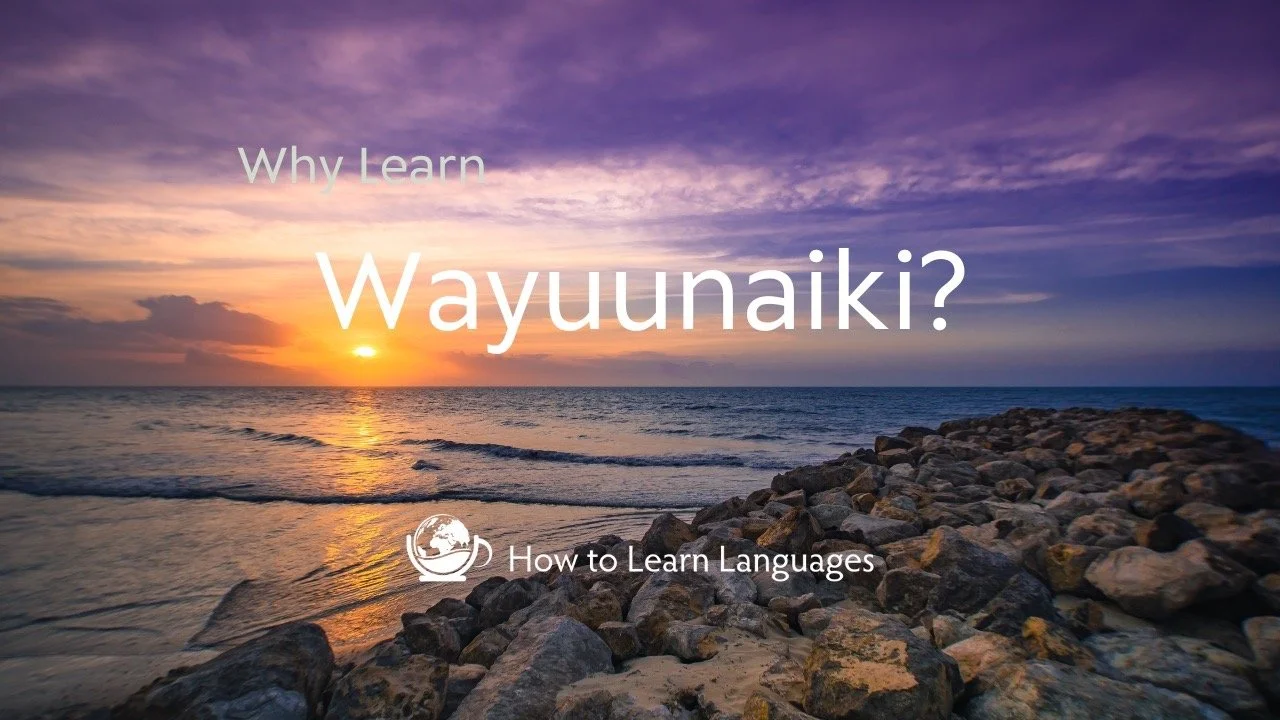Why Learn Wayuunaiki?
Why learn languages?
Though it’s true a second language can help us find jobs, let’s also focus on the other reasons for learning a language. We spend so much of our lives having to serve the interests of an economy that doesn’t care about people or the world. It’s high time we were able to put the interests of each other ahead of those of CEOs and tax havens. Learning a language, in a variety of ways, can help us do this.
Society often funnels us down a career-path. Before we’ve had the chance to discover where our passions reside, we find ourselves scrambling from paycheck to paycheck on low or minimum wages. Worse still, the labour we provide either leaves us starved of inspiration, or in some cases even robs us of time to pursue our interests - all of which has damaging implications for our mental and physical health.
Learning a language can provide some relief, and even an escape, from these pressures. It can’t stop us worrying about bills or rent, but it can help us find other lines of work. Aside from potential career benefits, the process itself is rewarding, and a lot more fun than traditional methods have led us to believe. Far from being an unwelcome burden on our daily routines, learning a language can become an enjoyable distraction from life’s pressures. As well as helping our immediate mental health, it is also thought to aid cognitive function, and could delay the symptoms of dementia.
Learning a language may even help us tackle the problems facing the world. If we can communicate with and learn from each other, we stand a better chance of organising against issues as global as climate breakdown.
Why learn Wayuunaiki?
Wayuunaiki is spoken by more than 400,000 people, on the Guajira Peninsula - in northeastern Colombia and northwestern Venezuela. The language is sometimes referred to as Wayuu, after the people who speak it, as well as Guajiro.
Although speaking a new language does not revolutionise how you see the world, the people and cultures it takes you to will. It's almost like discovering the world again as a child, just in a different tongue. It refreshes the mind and can fill you with the impetus to experience different cultures and meet new people. This could be as conveniently as watching Wayuunaiki films or reading a Wayuunaiki novel in the evening. It could be an experience as spontaneous as chatting with people at a bar in Cabo de la Vela, or before a football match in Maicao. It could even be a whole new life in Colombia or Venezuela.
After learning any language, the prospect of learning others suddenly feels much more feasible, and this is especially true for languages that share similarities. After learning Wayuunaiki, you’ll find it easier to learn other languages from the Arawakan family, such as Taíno and Garifuna.
Chances are that if you’re reading this, you already have an idea of why you’d like to learn Wayuunaiki. Whether it’s for professional reasons or pure curiosity, I hope these paragraphs have given you a brief sense of the benefits learning Wayuunaiki, or indeed any language, can bring.
If you're interested in learning Wayuunaiki, more information and resources can be found on its Get to Know page here on the How to Learn Languages website :

